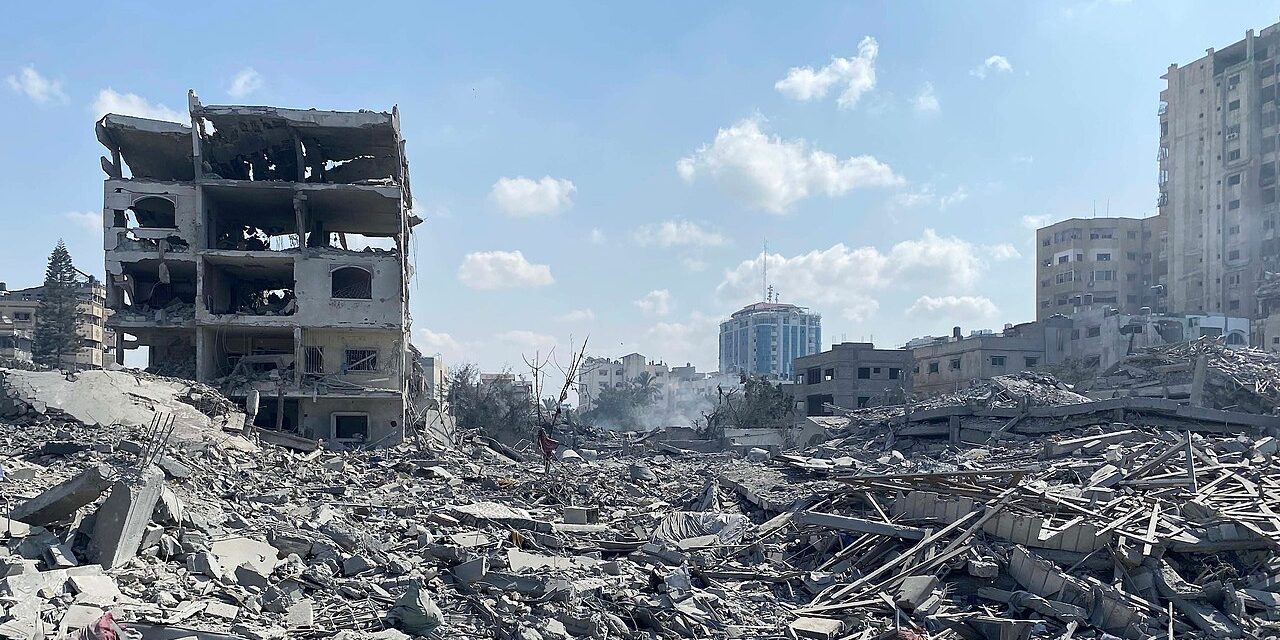A right to defend itself: Do all nations have it equally?
When UK Prime Minister Keir Starmer urged Iran not to respond to recent Israeli airstrikes, he sparked a crucial debate: recent events in the Middle East, coupled with the responses of Western leaders, suggest that the principle of a nation’s right to self-defence is not applied equally worldwide. This right, a foundational element of international law meant to protect national sovereignty, is central to the rhetoric surrounding Israel. While leaders repeatedly affirm “Israel’s right to defend itself,” they often dismiss similar claims from nations like Iran or occupied territories such as Palestine. The frequent endorsement of Israel’s self-defence claims appears increasingly illegitimate, as Israel continues to explicitly violate international laws and norms. This discrepancy raises a fundamental question: are these rights truly universal, or are they selectively applied based on political interests?
Under Article 51 of the UN Charter, nations hold an inherent right to self-defence if they face an “armed attack,” allowing them to protect their territory, citizens, and sovereignty until the UN Security Council intervenes. National sovereignty, the foundation of this right, affirms a nation’s authority over its territory, allowing it to make political decisions without interference. The International Court of Justice (ICJ) has also clarified that self-defence requires a “proportionate response,” restricting force to what is strictly needed to repel the attack and maintain security.
A nation cannot invoke self-defence against actions within a territory it occupies, as the occupied population holds the right to resist occupation
In October 2024, Israeli airstrikes on Iranian military sites killed Iranian soldiers, prompting Iran’s foreign ministry to assert that it “has the right to defend itself” against such aggression. Despite Iran’s invocation of self-defence, Western leaders like Starmer urged restraint, cautioning that any Iranian response might escalate tensions. In September, when Iran struck Israeli military and intelligence targets, Starmer “utterly condemned” these actions. In August, alongside the leaders of France and Germany, he issued a joint statement calling for de-escalation in response to the killing of Hamas’s political leader in Tehran, despite Iran’s legitimate right to retaliate and establish deterrence against further attacks on its soil. This hesitancy and tone contrast sharply with the unwavering support Israel receives whenever it invokes self-defence.
Palestinians in the West Bank face a similar form of inconsistency. Despite enduring decades of occupation, Palestinians’ right to self-defence and sovereignty is rarely acknowledged. Even during major incursions, Israel’s actions were frequently justified as countermeasures against alleged terrorist threats in Jenin. The ICJ has previously questioned Israel’s claim to self-defence within the occupied territories, asserting that a nation cannot invoke self-defence against actions within a territory it occupies, as the occupied population holds the right to resist occupation. Despite this reasoning, Israel’s actions are largely overlooked in political discourse, leaving Palestinian sovereignty unrecognized.
This double standard signals to the international community that some states are permitted greater latitude in interpreting self-defence
Turning to Israel’s military actions in Gaza, we see a stark imbalance in the application of self-defence and sovereignty principles. Since October, Israeli airstrikes have created “nightmarish” conditions in the Gaza Strip. The operation, under investigation as a potential genocide, is continually justified by Israeli officials and Western leaders as a response to the October 7 attacks. Even according to this justification — and disregarding decades of occupation — the lack of proportionality in Israel’s retaliation is striking. In response to the killing of more than 1,000 Israelis, Israeli Defence Forces (IDF) have killed upwards of 40,000 Palestinians, with credible reports of targeted attacks on schools, refugee camps, hospitals, journalists, humanitarian workers, and children. Judge Charlesworth of the ICJ has criticized the disproportionality and questioned the legality of Israel’s actions in Gaza and the West Bank.
Despite this, Western leaders continue to support Israel’s “right to defend itself,” largely ignoring the principle of proportionality under international humanitarian law, which mandates minimising harm to civilians. These actions in Gaza nullify any legitimate claim of self-defence: any attempt to justify the IDF’s incursion through legal frameworks is now nearly impossible, especially given official directives within the IDF, such as the Dahiya Doctrine, enshrining war crimes in the IDF modus operandi.
The right to self-defence risks becoming a tool of political convenience
In theory, the framework of self-defence is intended to be impartial and universal, protecting all nations from external threats. In practice, however, Western nations apply it selectively. By consistently denying or undermining the right to self-defence and resistance for states like Iran and occupied territories like Palestine, while affirming Israel’s right to defend itself unconditionally, Western powers like the UK not only reinforce Israel’s sovereignty but also tacitly endorse its illegal military actions. This double standard signals to the international community that some states are permitted greater latitude in interpreting self-defence, ultimately eroding the neutrality of international law and undermining the universal humanity of all.
By disregarding the principles of proportionality and legitimate force, Israel and its Western allies begin to dismantle international norms meant to protect people from unnecessary harm. This selective application destabilizes the rules-based international order, setting a precedent where self-defence is recognized based on political interests rather than legal principles. For international law to retain its legitimacy, it must apply impartially, affirming the rights of all nations equally. Without this consistency, the right to self-defence risks becoming a tool of political convenience, eroding the foundations of sovereignty and justice it was created to protect.

Comments (1)
Great article, indeed some principles of international law have not always been applied to countries governed by “unfriendly” regimes, triggering the question of whether international law principles apply to nations or to regimes?